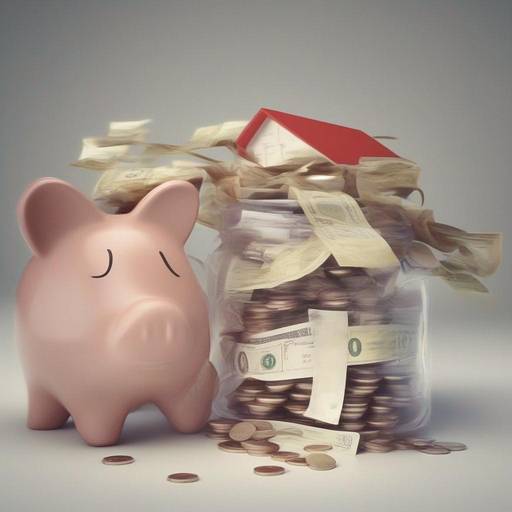
Personal credits, as a financial resource, have the ability to significantly influence the economic stability of individuals. This article focuses on exploring in detail the benefits, risks and the importance of maintaining proper control when accessing these types of loans. Understanding these aspects is crucial to making informed financial decisions and protecting long-term economic health.
Benefits of Personal Credits
Personal credits offer multiple benefits for those seeking funding. One of the most attractive aspects of these loans is their flexibility. Unlike other types of loans, personal credits tend to have less restrictions on the use of funds. This freedom allows borrowers to allocate money to various needs, such as unexpected expenses, home improvements or debt consolidation.
In addition, the speed with which these loans can be obtained is another relevant benefit. In emergency situations or when liquidity is needed immediately, personal credits may represent an effective solution. Also, the simplification of procedures and the reduction of bureaucracy compared to other conventional financial products make them an attractive option for many people.
Risks associated with personal credits
Despite its benefits, it is essential to consider the risks associated with the use of personal credits. One of the main challenges for borrowers is the potential impact on their credit history. An irresponsible or excessive use of these loans may result in a deterioration in the credit rating, which in turn would make it difficult to obtain credit in the future.
In addition, the lack of guarantees in personal credits poses a higher risk to financial entities, which is reflected in higher interest rates compared to other types of secured loans. This situation can generate additional financial weight for those who do not properly manage their debts, which could trigger a cycle of progressive indebtedness.
Financial control when accessing personal credits
Maintaining adequate financial control when accessing personal credits is essential to minimizing risks and maximizing benefits. It is essential to carefully evaluate the capacity to pay and avoid over-developing. Before applying for a personal credit, it is advisable to conduct a thorough analysis of existing income, expenses and debts to determine the feasibility of assuming a new financial commitment.
In addition, establishing a robust and realistic payment plan can help avoid delays or defaults, thus preserving the borrower's credit and economic health. Financial discipline is essential; efforts should be made to allocate personal credit funds exclusively for intended purposes and avoid the temptation to use them for unnecessary or superfluous costs.
Conclusion
In short, personal credits can be an invaluable tool to address timely financial needs or take advantage of personal or professional growth opportunities. However, its use requires a prudent and responsible approach. By understanding the benefits, risks and importance of financial control in accessing such loans, individuals can make informed decisions that strengthen their long-term economic health.
Frequently asked questions
- **What are the common requirements for accessing a personal credit?**The requirements may vary according to the financial entity, but typically include income vouchers, healthy credit history, and demonstrated payment capacity. It is important to consult with each institution to know its specific requirements.
- **What is the difference between a personal credit and a mortgage credit?**The main difference lies in the warranty associated with the loan. While a mortgage credit is backed by a real estate asset, a personal credit does not require such guarantees, affecting conditions and interest rates.
- **Can I use a personal credit to pay existing debts?**Yes, it is possible to use a personal credit to consolidate existing debts. However, it is crucial to carefully assess whether this strategy will result in sustainable financial relief or simply generate greater long-term credit burden.
- **How can I maintain efficient control over my personal credit?**Keeping a detailed budget, making payments on time and restricting the use of personal credit funds to genuine needs are key practices in maintaining effective control over the loan.
- **What are the typical interest rates for a personal credit?**Interest rates may vary considerably according to the applicant's credit status, loan amount and market conditions. Generally, interest rates of personal credits tend to be higher than those of other secured loans.
- **In what cases can a personal credit be an appropriate option?**Personal credits are useful to cover unforeseen expenses, make improvements in the home, afford educational studies, or face medical emergencies, among other valid uses. It is essential to evaluate the priority and need of expenses before applying for the loan.
This detailed information on benefits, risks and how to maintain effective control when accessing personal credits provides a solid basis for informed financial decisions. By fully understanding the key aspects of these loans, individuals can maximize their benefits and minimize risks, thereby strengthening their long-term financial health.






















































